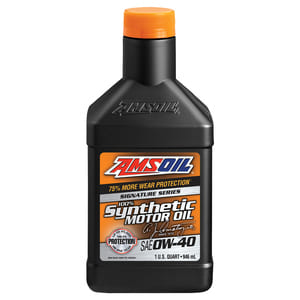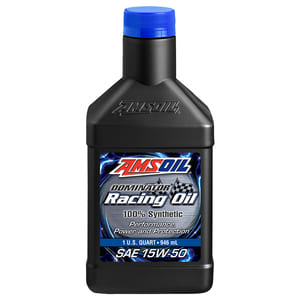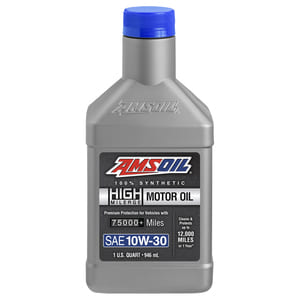Horsepower is key in the automotive industry. Car makers chase it, websites highlight it, and enthusiasts want more of it. But what is horsepower, exactly? This term, coined by a Scottish engineer in the 18th century, has deep roots. He observed how draft horses worked at breweries, estimating one horse could move 33,000 pounds one foot in one minute.
Fast forward to today, one horsepower equals 33,000 ft·lbf/min or about 745 watts. It’s a standard in the auto industry. From the power of Usain Bolt in a 100-meter dash (3.5 hp) to the immense 109,000 hp of the Wärtsilä RT-flex96C diesel engine, horsepower remains a fascinating measure of power and speed. For car enthusiasts, understanding horsepower means grasping why that sleek Lotus Evija’s 2,000 hp makes it a road legend. So, how is horsepower defined? It’s all about measuring power in a way that makes sense, both historically and practically.
How Is Horsepower Defined? Breaking It Down
One often hears about horsepower in car ads and spec sheets. But many might wonder what this term truly signifies. Defining horsepower helps us understand a vehicle’s strength and efficiency.

Historical Context of Horsepower
In the late 18th century, a Scottish engine wizard named James Watt was busy revolutionizing the steam engine. To persuade people to switch from horse-drawn carriages to his steam engines, he needed a relatable way to compare his inventions with horses. He coined the term “horsepower” to exhibit how many horses a single steam engine could replace.
Here’s a tidbit: Watt discovered that a strong horse could work steadily to move 33,000 pounds one foot in one minute. This quantifiable measure became the foundation of horsepower today. It was Watt’s marketing genius that aided the widespread adoption of his steam engines.
Types of Horsepower
Horsepower isn’t just one simple figure. It comes in different forms that reveal various aspects of a vehicle’s power. Here are the main types:
Mechanical Horsepower
Mechanical horsepower is the classic measure established by James Watt. It’s equivalent to lifting 33,000 pounds one foot in one minute. For example, professional athletes can exhibit bursts of about 1.2 horsepower, and a horse at peak performance can produce nearly 15 horsepower.
Brake Horsepower (BHP)
Brake horsepower, often called BHP, measures the engine’s power without considering losses like friction within the car’s transmission and other components. Think of it as an engine running at its best, without anything slowing it down. High-performance cars often boast high BHP figures to flaunt their raw, untamed power.
Wheel Horsepower (WHP)
Wheel horsepower is the real-world measure of a car’s performance. This is the power that actually reaches a car’s wheels after accounting for losses in the drivetrain (the system that transmits power from the engine to the wheels). It’s the truest test of what a car can deliver on the road. For instance, a car might have 300 BHP but only 250 WHP due to power losses.
These distinctions help car enthusiasts and engineers better understand and compare vehicles. Horsepower isn’t just a number; it’s a window into the soul of a car’s engine. Whether it’s BHP, WHP, or the raw mechanical horsepower, each type reveals a unique aspect of vehicle performance.
This section examined the historical roots and various forms of horsepower. Each type has its own context and significance, providing a deeper insight into what powers our favorite rides.

How Horsepower Affects Vehicle Performance
Understanding how horsepower influences a vehicle’s performance is key for any car enthusiast. Horsepower is more than just a number—it’s a measure of what your car can really do. But how does it affect the way a car performs on the road? And what’s the deal with torque? Here’s a breakdown of these crucial aspects.
Torque vs. Horsepower
So, what’s the difference between torque and horsepower? They often get lumped together, but they serve different functions in your car’s performance.
Torque: Think of torque as the force that gets your car moving. It’s all about the twisting force that makes the wheels spin. This is what gives you that feeling of being pushed back into your seat when you hit the gas pedal.
Horsepower: Horsepower, on the other hand, is how quickly that work can be done. It’s a measure of speed and power over time. In simple terms, horsepower is how fast your car can go and keep going.
Both torque and horsepower are important for performance, but they shine in different areas:
Torque is crucial for acceleration. That’s why muscle cars and trucks, which often need to haul heavy loads, focus on torque. Horsepower, meanwhile, is often associated with top speed. It’s what keeps race cars flying down the track.
In summary:
Torque = Acceleration: Helps your car start and pick up speed quickly.
Horsepower = Speed: Keeps your car moving fast once it’s already going.

How They Work Together
Imagine you’re riding a bike. Torque is the strength in your legs that gets the bike moving from a standstill, while horsepower is how fast you can pedal once you’re already cruising. Both are essential for a smooth, powerful ride.
In cars, getting the right balance of torque and horsepower can make a huge difference. Too much torque and not enough horsepower can make a car feel sluggish at higher speeds, while too much horsepower with low torque can make it feel weak off the line.
When car manufacturers design engines, they aim to balance torque and horsepower to match the vehicle’s purpose. Sports cars, for example, often prioritize higher horsepower for better speed. Trucks and SUVs may focus more on torque for towing and off-road capabilities.
Understanding how horsepower and torque interact can help you make more informed decisions when looking for your next vehicle. Whether you’re chasing speed or need raw power, now you know what to look for.

The Importance of Synthetic Lubricants for High Horsepower Engines
When it comes to harnessing all that horsepower in a car, engine lubrication is crucial. Synthetic lubricants, particularly from AMSOIL, provide significant benefits in ensuring engines perform at their best and last longer. Let’s break down why these synthetic oils are essential for high horsepower engines.
Benefits of AMSOIL Synthetic Lubricants
AMSOIL synthetic lubricants are custom-made for various horsepower outputs. They are designed to handle extreme conditions, making them ideal for high-performance engines.
Superior Wear Protection: AMSOIL lubricants are engineered to reduce wear and tear on engine parts. This ensures your engine remains in good condition, even under heavy stress.
Engine Cleanliness: These oils prevent sludge and varnish build-up. This keeps the engine clean, making sure it performs optimally.
Fuel Economy: By reducing friction and resistance, AMSOIL synthetic oils can improve fuel efficiency. This means you get more miles per gallon, saving money in the long run.
Extended Oil Change Intervals: AMSOIL lubricants don’t break down as quickly as conventional oils. This allows for longer intervals between oil changes, saving you time and hassle.
Temperature Stability: These oils perform well in both high and low temperatures. They maintain viscosity and protective properties in extreme conditions, which is crucial for high horsepower engines that generate a lot of heat.

Performance and Protection
Synthetic oils do more than just lubricate. They play a vital role in maintaining engine performance, enhancing fuel efficiency, and extending engine lifespan.
Maintaining Performance: By reducing friction, synthetic oils help maintain horsepower and torque levels. This ensures your engine runs smoothly and delivers the power you need.
Fuel Efficiency: Less friction means less energy wasted, improving overall fuel efficiency. Synthetic oils allow engines to run more efficiently, making sure every drop of fuel is put to good use.
Extending Engine Life: Synthetic oils provide a better barrier against wear and tear, which helps extend the life of the engine. This means fewer repairs and a longer-lasting engine.
In summary, synthetic lubricants, especially from AMSOIL, are essential for high horsepower engines. They provide superior wear protection, keep engines clean, improve fuel efficiency, and extend the life of the engine. For anyone serious about harnessing their car’s horsepower, synthetic oils are a must.

Remember, the power of your car’s engine means nothing if it can’t be sustained and protected. That’s where AMSOIL synthetic lubricants come into play.
Conclusion
Horsepower has been and continues to be a cornerstone in the automotive world. Born from a need to quantify the power of steam engines, it’s become the gold standard for measuring engine performance.
For car enthusiasts, understanding how horsepower is defined is crucial. It’s all about how much work an engine can do in a given time. Proper engine care, including using high-quality synthetic lubricants like AMSOIL, ensures that engines perform at their peak.
Curious about the latest horsepower monsters or tips on car maintenance? Keep the conversation going and share your thoughts.
For more details about AMSOIL synthetic oils, check out bestengineoilintheworld.com.

